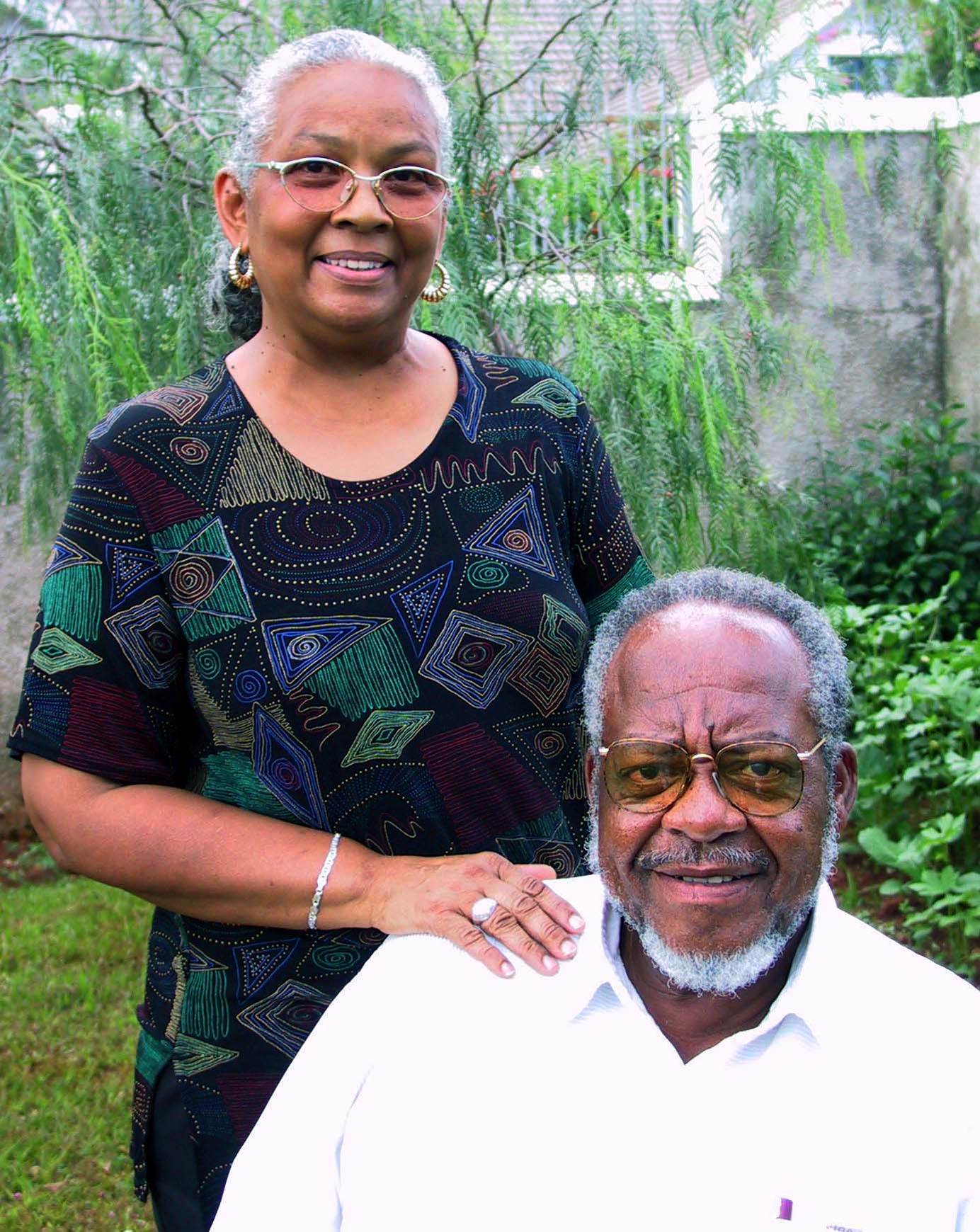
JINJA, Uganda (BP)–On the outskirts of the small Ugandan village sits a rock. It looks like an ordinary rock, but in fact this rock is so special it is considered the village’s god.
Once a week, villagers approach the rock, offering sacrifices of food and other valuables. After laying the sacrifices down, they must turn around and never look back.
Southern Baptist International Mission Board missionaries Willie and Beulah Scott shake their heads sadly.
“I’ve heard of such things,” Beulah says. “But until you see it, you just can’t believe that it actually happens.”
Willie clears his throat and leans forward in his chair, a tear in his eye.
“We talked to 42 adults and none of them had ever heard the name of Jesus Christ,” he says, just barely above a whisper. “Where have we been with the gospel? Where are the laborers? Surely we can do better than this.”
The retired minister and his wife, a retired preschool teacher, intend to do something about it. A month-long speaking tour through Georgia, Tennessee, Mississippi, Illinois and Ohio in June focused mainly on motivating African-American Baptists to join God on mission around the world.
“Our people (African-American Baptists) need to become more involved,” Beulah says. “We can make a real difference here in Africa. Our DNA is over here, we need to invest here and give more and more.”
The Scotts admit that just being an African-American does not mean they are like Ugandans or other people in Africa. Most black Africans are very tribalistic and relate directly to clans. Many live in small mud huts with no electricity or running water.
“Of course, I’m old enough that I remember living like that in the United States,” Willie says. “What I’m talking about is that African-Americans can and will be instrumental in changing the people of Africa. Our roots ultimately come from here. We can go places our fellow (white) missionaries cannot go.”
Willie’s own ministry is a shining example of that. The former pastor of Providence Community Church in Marietta, Ga., originally came to Uganda to work with the Basoga people. After a few months, he noticed an area of Uganda that was unreached and untapped — the Lake Victoria Islands.
Lake Victoria is the second largest fresh water lake in the world and is home to more than 60,000 people on more than 50 islands. Most inhabitants of the islands are exiles, banished there as political refugees or criminals. Some have incurable diseases such as AIDS, while others were sent there because the witchdoctor cursed them.
The islands’ rough characters normally do not welcome outsiders. The only way on and off the islands is in canoes hauling loads of charcoal. Fishing is the only source of income, averaging out to less than 40 cents a day for those who work.
“No one was going to the islands,” Willie says. “Paul Eaton (former IMB missionary) went to the islands and started a church a long time ago, but that’s it. No one was there bearing a witness. The darkness and hopelessness is so thick there. We just had to start going.”
George and Geraldine Smith, African-American friends from Mississippi, soon joined the Scotts in the ministry on the islands. A Bible school and literacy classes started, as well as primary and preschools for the children.
“As African-Americans, we have experienced oppression. This allows us to relate in an entirely different way to the Ugandans,” George Smith says. “It opens doors that would not otherwise be opened.”
Willie dreams of a day when all African-American Baptist pastors would serve one year as a missionary overseas — so they too can see what a difference they and their churches can make when they reach out to the world.
Most people who grew up in African-American Baptist churches did not learn about missions as it is traditionally taught in Southern Baptist churches, Beulah explains. Most African-American congregations focus closely on their community and evangelizing the area around them.
“It makes me cry that my people are not moving out to the world,” she says. “The same zeal our churches use to reach their local communities is exactly what is needed on the mission field.
“Missions is a new area for most African-Americans,” she adds. “Despite that, God is still expecting African-Americans to invest in the spiritual freedom of their continent.”
Nodding his head in agreement, Willie says he prays God will use them to call out more African-American missionaries.
–30–
(BP) photo posted in the BP Photo Library at http://www.bpnews.net. Photo title: THE SCOTTS.

















